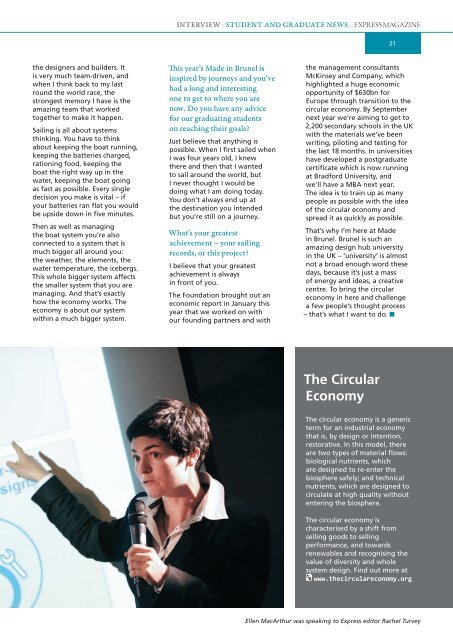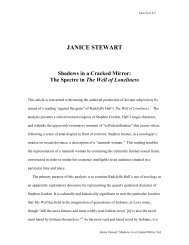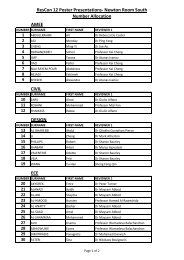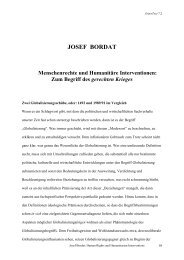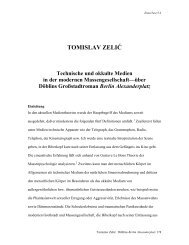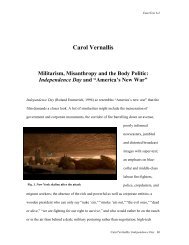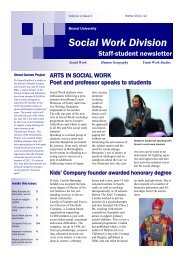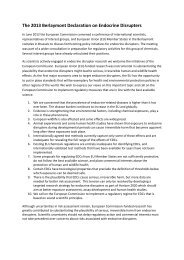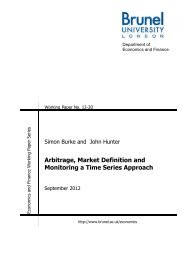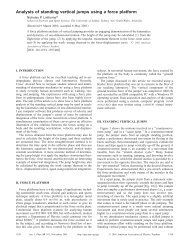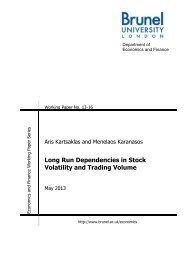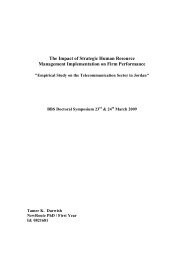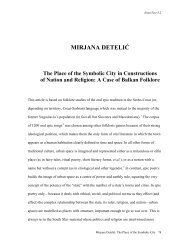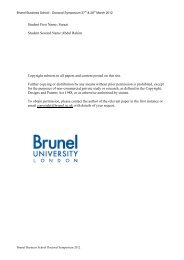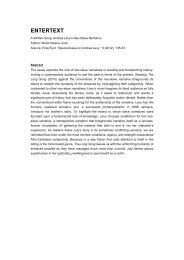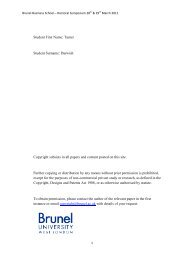Issue 16 Autumn 2012 - Brunel University
Issue 16 Autumn 2012 - Brunel University
Issue 16 Autumn 2012 - Brunel University
You also want an ePaper? Increase the reach of your titles
YUMPU automatically turns print PDFs into web optimized ePapers that Google loves.
the designers and builders. It<br />
is very much team-driven, and<br />
when I think back to my last<br />
round the world race, the<br />
strongest memory I have is the<br />
amazing team that worked<br />
together to make it happen.<br />
Sailing is all about systems<br />
thinking. You have to think<br />
about keeping the boat running,<br />
keeping the batteries charged,<br />
rationing food, keeping the<br />
boat the right way up in the<br />
water, keeping the boat going<br />
as fast as possible. Every single<br />
decision you make is vital – if<br />
your batteries ran flat you would<br />
be upside down in five minutes.<br />
Then as well as managing<br />
the boat system you’re also<br />
connected to a system that is<br />
much bigger all around you:<br />
the weather, the elements, the<br />
water temperature, the icebergs.<br />
This whole bigger system affects<br />
the smaller system that you are<br />
managing. And that’s exactly<br />
how the economy works. The<br />
economy is about our system<br />
within a much bigger system.<br />
iNTervieW :: sTUdeNT ANd GrAdUATe NeWs :: eXPRess MAGAZINe<br />
This year’s Made in <strong>Brunel</strong> is<br />
inspired by journeys and you’ve<br />
had a long and interesting<br />
one to get to where you are<br />
now. do you have any advice<br />
for our graduating students<br />
on reaching their goals?<br />
Just believe that anything is<br />
possible. When I first sailed when<br />
I was four years old, I knew<br />
there and then that I wanted<br />
to sail around the world, but<br />
I never thought I would be<br />
doing what I am doing today.<br />
You don’t always end up at<br />
the destination you intended<br />
but you’re still on a journey.<br />
What’s your greatest<br />
achievement – your sailing<br />
records, or this project?<br />
I believe that your greatest<br />
achievement is always<br />
in front of you.<br />
The Foundation brought out an<br />
economic report in January this<br />
year that we worked on with<br />
our founding partners and with<br />
21<br />
the management consultants<br />
McKinsey and Company, which<br />
highlighted a huge economic<br />
opportunity of $630bn for<br />
Europe through transition to the<br />
circular economy. By September<br />
next year we’re aiming to get to<br />
2,200 secondary schools in the UK<br />
with the materials we’ve been<br />
writing, piloting and testing for<br />
the last 18 months. In universities<br />
have developed a postgraduate<br />
certificate which is now running<br />
at Bradford <strong>University</strong>, and<br />
we’ll have a MBA next year.<br />
The idea is to train up as many<br />
people as possible with the idea<br />
of the circular economy and<br />
spread it as quickly as possible.<br />
That’s why I’m here at Made<br />
in <strong>Brunel</strong>. <strong>Brunel</strong> is such an<br />
amazing design hub university<br />
in the UK – ‘university’ is almost<br />
not a broad enough word these<br />
days, because it’s just a mass<br />
of energy and ideas, a creative<br />
centre. To bring the circular<br />
economy in here and challenge<br />
a few people’s thought process<br />
– that’s what I want to do.<br />
The Circular<br />
Economy<br />
The circular economy is a generic<br />
term for an industrial economy<br />
that is, by design or intention,<br />
restorative. In this model, there<br />
are two types of material flows:<br />
biological nutrients, which<br />
are designed to re-enter the<br />
biosphere safely; and technical<br />
nutrients, which are designed to<br />
circulate at high quality without<br />
entering the biosphere.<br />
The circular economy is<br />
characterised by a shift from<br />
selling goods to selling<br />
performance, and towards<br />
renewables and recognising the<br />
value of diversity and whole<br />
system design. Find out more at<br />
www.thecirculareconomy.org<br />
Ellen MacArthur was speaking to Express editor Rachel Turvey


